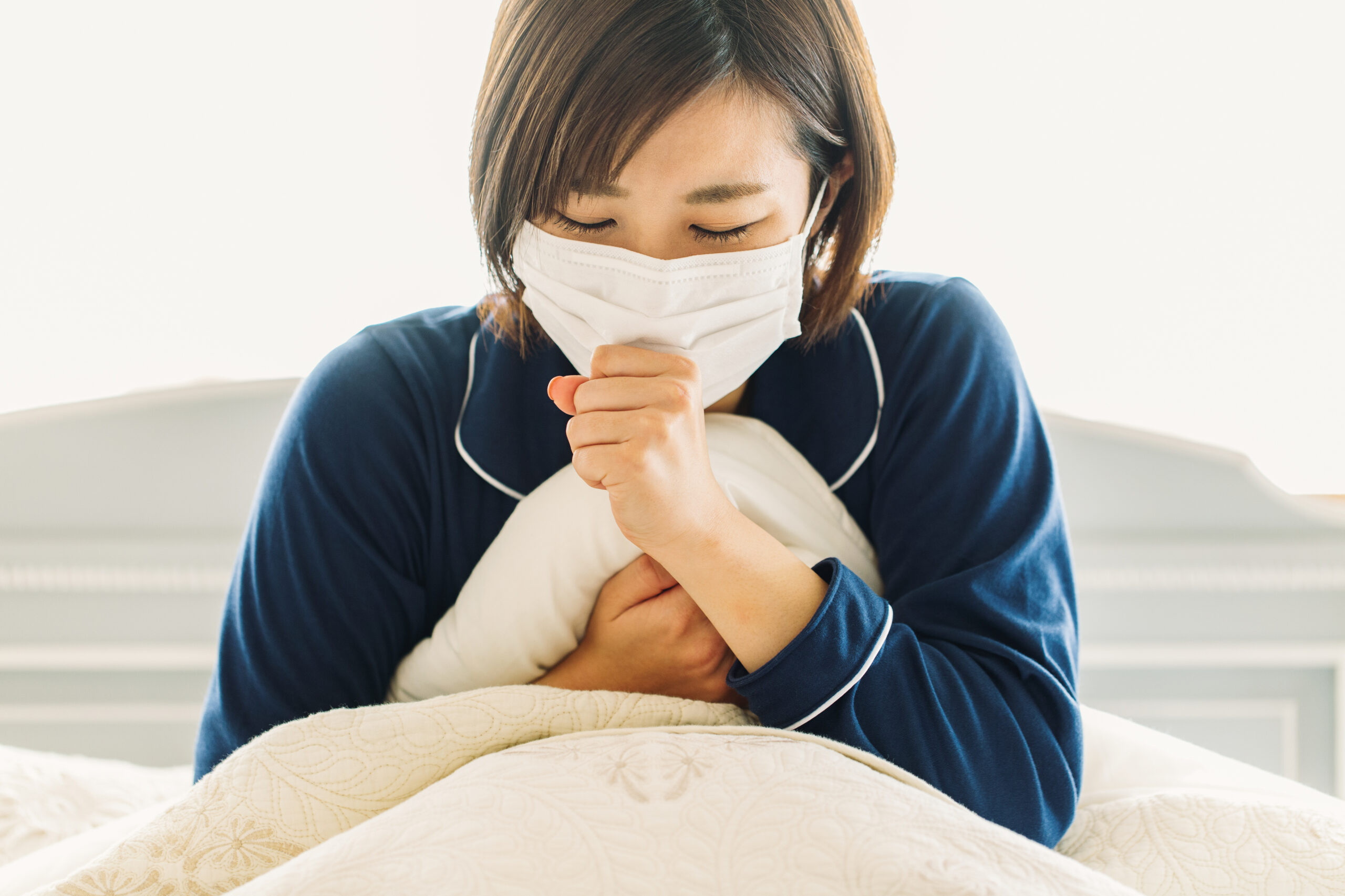ASOURCE®NAVI

公開日:2021.09.02
新型コロナウイルスの感染急拡大に伴い、自宅療養者が加速度的に増えています。このなかには、入院の調整が難航して自宅での療養を余儀なくされている人も少なくありません。自宅療養中、重症化しないためにはどのようなことに注意を払えばよいのでしょうか。そのポイントをまとめました。
東京都の8月31日時点の新型コロナ自宅療養者は約2万人。このうち、7,000人弱が入院・宿泊療養など調整中となっています。40代を中心に20代、30代の若い世代が大半を占めています。
自宅療養の期間は「発症から10日経過かつ症状軽快から72時間経過」とされます。保健所の指示に従い、人との接触を避けるため外出不可となります。自宅療養中に新型コロナの病状が急変することがあり、特に、発症から7〜10日にかけて注意が必要といわれています。この時期に咳、痰、呼吸困難などが強まると、肺炎が進展している可能性があるとされます。その際は保健所に詳細な病状変化を伝えるようにします。ただし、新型コロナの呼吸不全では、体内の酸素が相当低下していても息苦しさなどの自覚症状が乏しいケースも散見されます。このため、パルスオキシメーターを用意し、こまめに測定して酸素飽和度の数値をチェックすることが必要とされ、自治体によっては自宅療養者にパルスオキシメーターを貸与するところもあります。厚労省の「新型コロナウイルス感染症 COVID-19 診療の手引き」では、酸素飽和度96%未満を中等症 Iと定義して原則入院としています。また、93%以下を中等症IIと定義し、酸素投与が必要な入院対象と位置付けています。酸素飽和度が低下したり、突然の強い胸痛や不整脈などの症状が現れた場合は保健所への連絡が必要です。
ただし、パルスオキシメータは現在、全国的に需要が急増し、品薄の状態が続いています。パルスオキシメーターがなくても症状の進行に気づくポイントとしては、
①トイレに行くために歩いたときに息が切れる
②1分間の呼吸回数が20回を超える(通常の呼吸回数は12〜15回)
などが危険な兆候とされています。
家庭内で新型コロナに感染した自宅療養者が出た場合は、同居者が新型コロナに感染せずに安全に生活できるための工夫が求められます。
①部屋を可能な限り分ける
②感染者の世話は限られた人にする(一人が望ましい)
③全員がマスクを着用する
④こまめな換気と手洗いをする
⑤取っ手やノブ、トイレの便座や流水レバーなどの共用部分を消毒する
⑥汚れたリネン、衣服を洗濯する
⑦ゴミは密閉して捨てる
などが必要です。自宅療養者は個室で過ごすようにし、同居者がその個室に出入りする際にはマスクを着用し、部屋を出た後は手指の手洗いや消毒が必要です。感染者の部屋の定期的な換気ほか、他の家族がいる部屋の換気も望ましいとされます。感染者と部屋を分けるのが難しければ、2メートル以上空けてカーテンなどで仕切ることもよいとされます。
一人暮らしの場合は、保健所との連絡のほか、家族や友人などとも連絡を取り、連絡が取れなくなった場合は病状が悪化したことに早めに気づいてもらえるようにしておくことが大切です。新型コロナは、若者、高齢者を問わず急激に症状が悪化する場合があるので、家族や友人から定期的に連絡を入れてもらうのもよいでしょう。外部から療養者の支援に訪れた人のために、使い捨ての手袋やマスク、消毒液といった感染防止用品を玄関に置いておくことも役立つとされます。また、普段から、1〜2週間分の保存食や飲料水の備蓄、市販の解熱鎮痛薬、体温計なども備えておくことも心がけたいところです。
メディアスグループは、医療機器の販売を中心とした事業を展開しています。医療に携わる私たち(Medical+us)は、医療現場や人々の健康的な明日へ役立つ情報をお届けする情報発信源(Media)の役割も果たしていきたいと考えています。